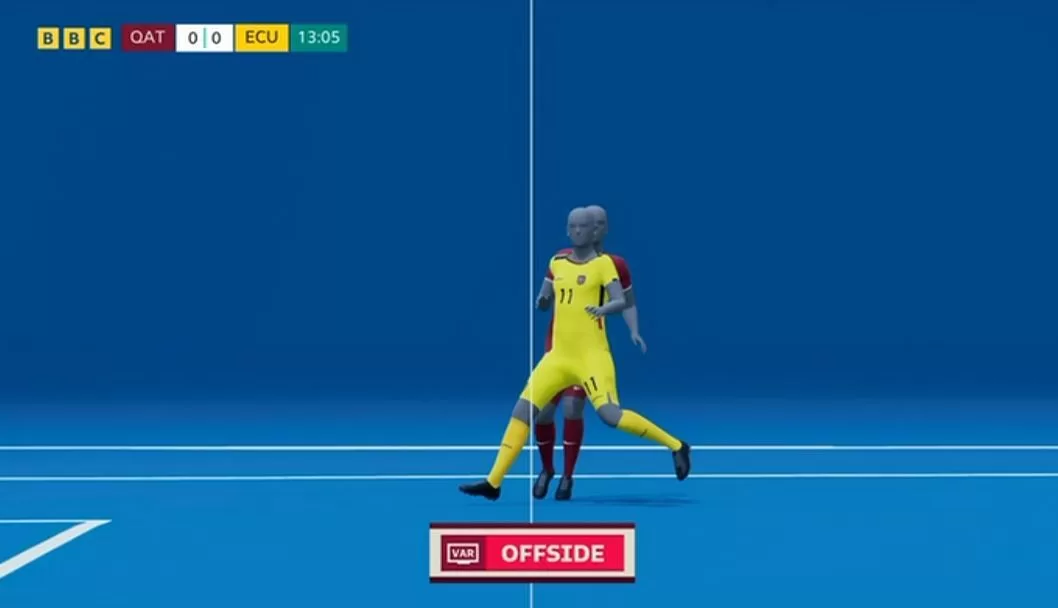Club bosses voted against semi-automated offside technology and its “limb-tracking” cameras last summer, despite it being installed by top-flight clubs in Uefa competitions.
At Qatar 2022, Fifa used the “full” version, which includes a chip in the match ball plus cameras tracking 29 body parts of each player.
That system would have given near-instant clarity whether Anthony Gordon was offside for Newcastle’s winner against Arsenal on Saturday — but would not have decided if the ball was out of play before it was crossed in.
Earlier that day, it would have let the VAR focus on Harry Maguire’s involvement before Manchester United’s disallowed goal at Fulham.
Instead they had to first determine if Alejandro Garnacho was offside.
The system would also have sped up a host of offside calls as Chelsea won at Spurs.
The revamp, which includes computer-generated 3D clips to illustrate offside decisions, has been deployed in Italy this season while it is also approved by LaLiga in Spain for use next term.
In June, the Prem justified sticking with current methods by arguing the evolution of tech was likely to be so rapid that the system would have been out of date by the end of the season.
But recent events appear to have changed their minds.
CASINO SPECIAL – BEST CASINO WELCOME OFFERS
One issue is that the Fifa system — developed by Munich-based Kinexon — was designed to work only with an Adidas ball, while the Prem has a long-term Nike deal.
Fifa insiders confirmed that Kinexon is willing to work with other manufacturers but it would require thorough testing to ensure the sensor works with a different ball.
In the meantime, the Prem could utilise the Uefa-style version of SAOT, using the cameras but not the chip.
But SunSport has been told that Prem bosses have already spoken to a number of companies who could also provide similar chip-in-ball technology.
One source said: “It’s obvious we couldn’t bring SAOT in during a season.
“It would be wrong to put a time-frame on this — but it is something we are looking at now for next season.”
WORLD CUP-STYLE VAR
How it would work:
- Each ground will have up to 12 special cameras with limb-tracking technology.
- These will focus on 29 goal-scoring body parts from every player on the pitch and will record their position 50 times per second.
- During the World Cup in Qatar, the microchip in the ball sent back data points 500 times every second to determine the precise instant it was played by an attacker OR a defender
- That allowed the computer technology to alert the VAR that a player was in an offside position when the ball was played
- But all decisions were then checked to ensure the attacker was interfering with play
- The average time for an offside call in Qatar was cut to 25 seconds per incident
- In future, a 3D animation will “show” the decision to fans in the stadium and via broadcasters, and this will be available by the next stoppage in play after the decision.



